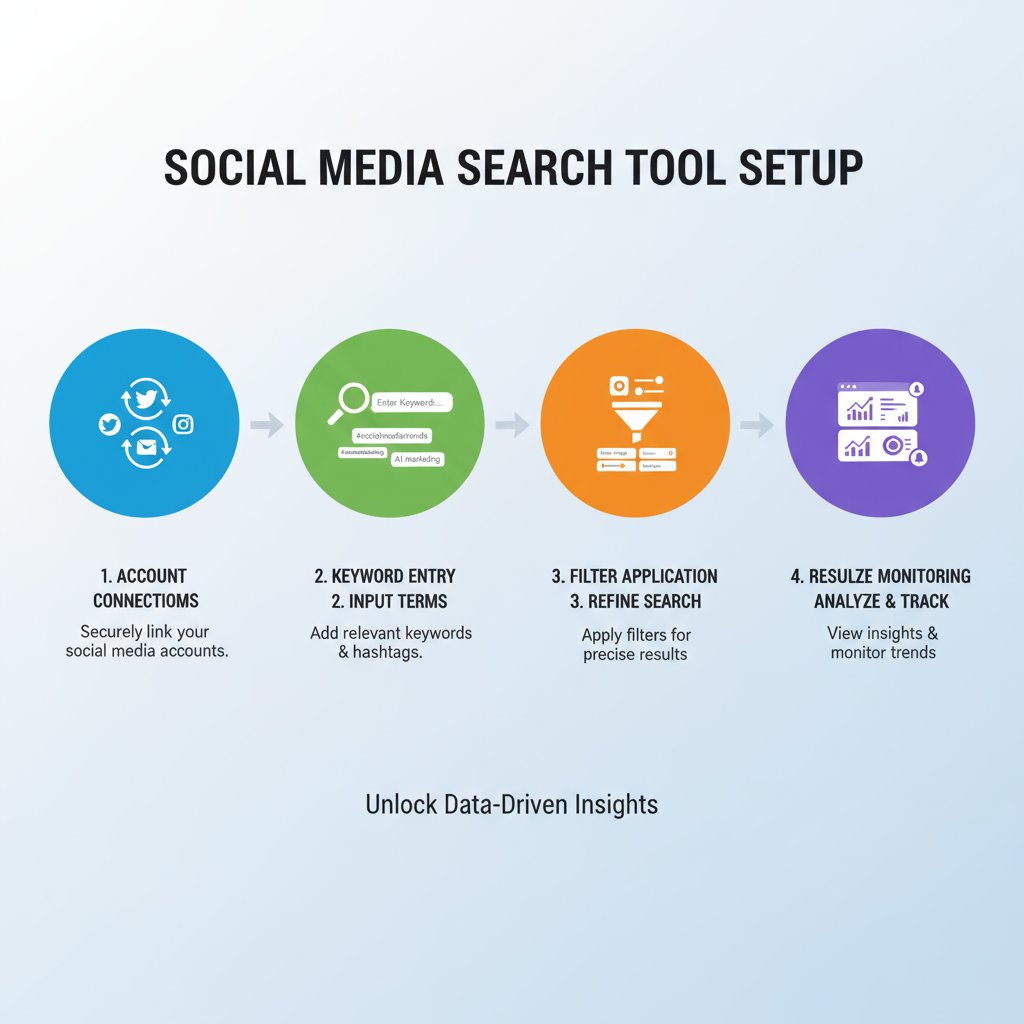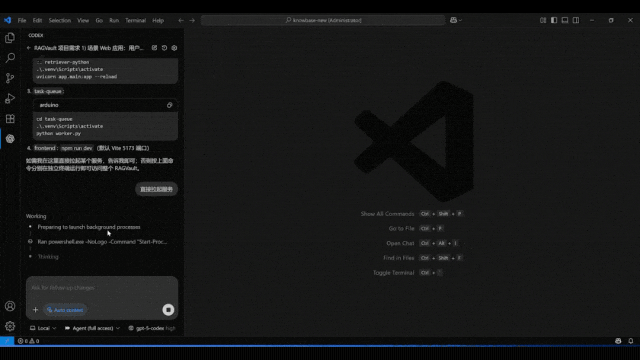How to Use a Search Engine for Social Media to Grow
Learn how to use a social media search engine to uncover trends, research competitors, find influencers, and grow your online presence effectively.

How to Use a Search Engine for Social Media to Grow Your Presence
In the fast-moving world of digital marketing, staying on top of trends and conversations is essential. One powerful yet often overlooked way to do this is by using a search engine for social media. These tools give you deeper access to posts, keywords, hashtags, influencers, and audience behaviours across multiple platforms, allowing you to move beyond surface-level browsing. Whether you’re a brand owner, marketer, or content creator, mastering this approach can help you achieve faster, smarter, and more measurable growth.

This guide will walk you through:
- What a social media search engine is
- How it differs from in-platform search boxes
- Key benefits and real-world applications
- Setup and usage tips
- Mistakes to avoid
- Recommended tools for different needs
---
What Is a Social Media Search Engine?
A search engine for social media is a specialized tool that indexes content from one or more social platforms, enabling advanced searches across posts, profiles, hashtags, and media. Unlike Google, which focuses on web pages, these engines are tailored to social data, often offering:
- Real-time indexing to capture fresh posts
- Advanced filters such as engagement, sentiment, or post type
- Cross-platform search in one interface
For example, a search for `#EcoFashion` might return not only posts but also top influencers using the tag, trending discussions, and precise engagement metrics.
---
Built-in Platform Search vs. Dedicated Social Media Search Tools
Every social platform—Instagram, Twitter (X), LinkedIn, TikTok—has its own search bar. But compared to standalone tools, these native searches can be limiting.

| Feature | Built-in Platform Search | Dedicated Social Media Search Tools |
|---|---|---|
| Scope | Single platform only | Multiple platforms at once |
| Filters | Basic (date, type) | Advanced (sentiment, engagement, location) |
| Speed of Results | Near real-time | Real-time or faster aggregation |
| Analytics | Minimal | Rich insights and metrics |
| Export Options | Usually none | CSV, PDF, API integration |
In short: Built-in search is fine for casual use, but growth-focused users benefit from the functionality and depth of dedicated tools.
---
Key Benefits of Using a Social Media Search Engine
Harnessing a search engine for social media can unlock several strategic advantages:
- Trend Discovery – Identify emerging topics, hashtags, and memes before competitors.
- Competitor Research – Analyse what rivals post, their top-performing content, and engagement tactics.
- Influencer Identification – Discover creators with high, authentic engagement in your niche.
- Audience Insights – Understand what your audience is talking about and when they’re most active.
---
Steps to Set Up Your Social Media Search Tool
Many social media search engines offer both free and paid options. Typical setup includes:
- Sign Up – Create an account via email or a connected profile.
- Connect Platforms – Link your accounts for richer insights.
- Define Interests – Choose keywords, hashtags, or topics to monitor.
- Select a Plan – Free tiers usually limit data depth; paid plans expand coverage.
_Example:_
Free accounts may only show the last 7 days of posts; premium access could reach up to two years back.
---
Keyword and Hashtag Search for Content Ideas
Once you’re set up, start searching core topics your audience cares about:
#FitnessMotivationor
"remote work culture"Results often include:
- Top-performing posts using the keyword
- Related hashtags
- Engagement statistics
This data reveals which topics spark the most interest, helping you produce content more likely to resonate.

---
Advanced Filters to Refine Results
Dedicated tools excel with advanced filters:
- Date Range – Focus on the last 48 hours or review patterns over months.
- Engagement Rate – Surface posts with unusually high interactions.
- Sentiment Analysis – Classify mentions as positive, neutral, or negative.
These filters let you pinpoint actionable insights, such as tones and topics that drive stronger audience involvement.
---
Monitoring Brand Mentions and Industry Trends in Real Time
A key use case is real-time alerting for brand or industry mentions:
- Respond quickly to customer feedback
- Detect potential PR issues before they grow
- Join trending conversations early
Some tools even send notifications straight to your email or phone within minutes.
---
Integrating Search Insights into Your Content Calendar
Turning search insights into action is essential:
- Plan blog topics and social captions around rising themes
- Create videos addressing trending questions
- Adapt paid ads to high-performing messages
For instance, spotting a surge in `#SustainableTravel` could inspire themed posts for the week and targeted ad tests.
---
Tracking Performance After Applying Insights
Measure and compare:
- Engagement rates pre- and post-insight implementation
- Follower growth and click-through rates
- Year-over-year or seasonal trend changes
Positive shifts validate your approach; flat or declining metrics mean the need to recalibrate keywords or filters.
---
Common Mistakes to Avoid
Even effective tools can fail if misused:
- Overloading Searches – Too many topics at once dilute focus.
- Ignoring Sentiment – Not all attention is positive; monitor tone.
- Relying Solely on Data – Pair analytics with your authentic voice.
- Neglecting Consistency – Irregular monitoring misses opportunities.
---
Top Tools Worth Considering
Different goals require different solutions:
- Brandwatch – Enterprise-grade analytics and monitoring
- Talkwalker – Excellent for real-time trend detection
- Sprout Social – Well-balanced for SMBs, includes publishing tools
- Hootsuite Insights (Brandwatch) – Combines scheduling with deep search
- Social Mention – Free and straightforward for basic sentiment
---
Final Tips for Sustainable Growth
To consistently benefit from a search engine for social media:
- Review Weekly – Set a recurring time to analyse data
- Evolve Your Strategy – Adapt content to audience response
- Update Keywords Often – Keep pace with changing trends
- Share Insights – Ensure your team acts on findings
Ultimately, a social media search engine is not just a listening device—it’s a strategic guide that can help navigate the dynamic landscape of online conversations, keeping your brand relevant, responsive, and ahead of the curve.
---
Summary:
Mastering a search engine for social media gives you the ability to discover trends early, understand your audience better, track competitors, and refine your content strategy for measurable results. Start small, build consistent habits, and leverage insights for every aspect of your marketing.
Call to Action:
Experiment with one of the recommended tools today, apply the tips in this guide, and start driving faster, smarter growth across your social platforms.



